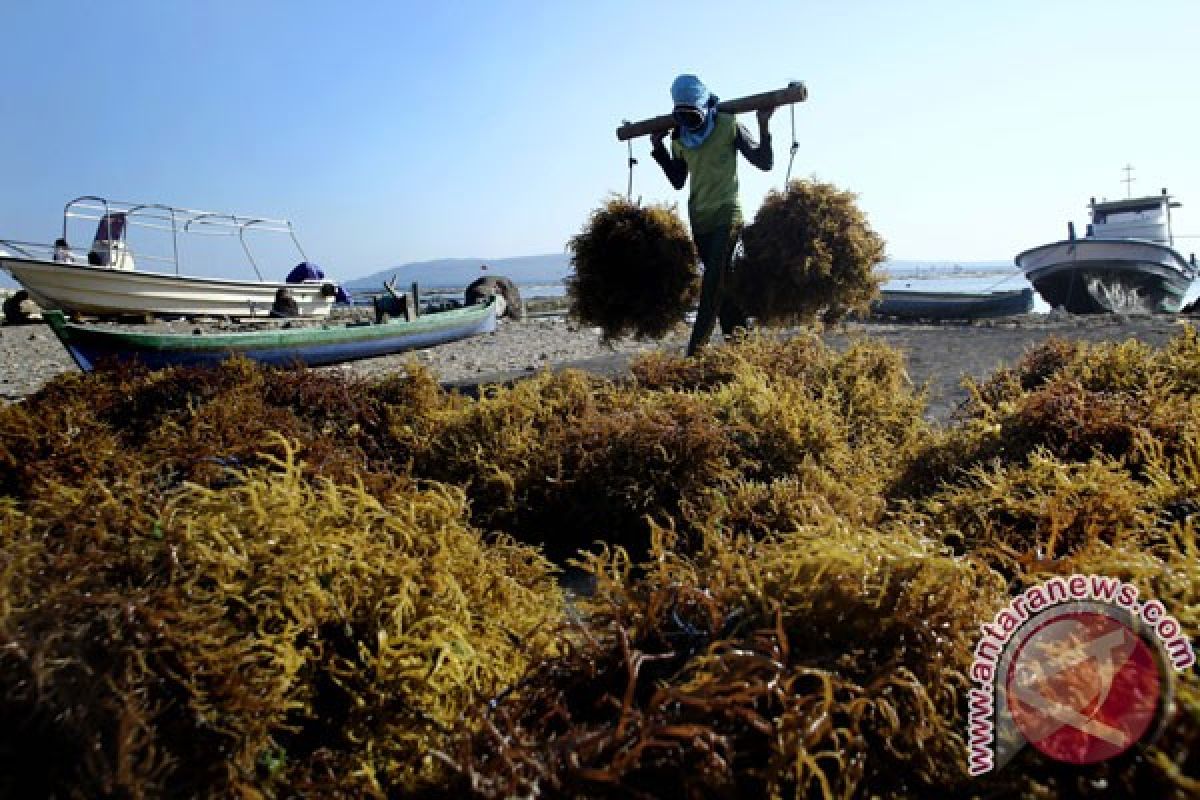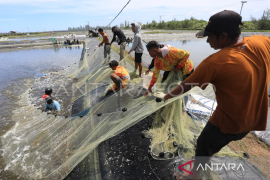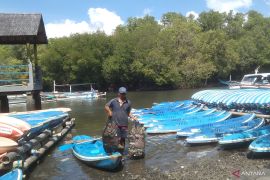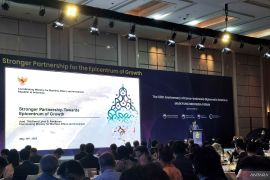The value of seaweed exports is higher than what domestic industries can afford."Jakarta (ANTARA News) - The weak purchasing power of industries in the national maritime sector hinder them from absorbing domestically-produced seaweed optimally, according to Chairman of the Indonesian Seaweed Businessmen Association (ARLI) Safari Azis.
"The value of seaweed exports is higher than what domestic industries can afford. Seaweed producers prefer to export the commodity at higher prices overseas," Azis said in a press statement on Friday.
He added that the domestic purchasing power of the national industries is still low as compared to that of foreign industries, such as those in China, the Philippines and Chile.
However, the Industry Ministry recently stated that domestic maritime downstream industries do not have sufficient raw materials because they are mostly exported, both illegally and legally.
According to data from the Maritime Affairs and Fisheries Ministry, at least 930 thousand tons of dried seaweed was produced nationally in 2013, of which some 176 thousand tons was exported, earning US$162.4 million.
On the contrary, only 120 thousand tons of the total production of dried seaweed was processed domestically.
Azis urged the government to provide domestic industries with the necessary aid to ensure that they can afford the commodity.
He believes that the shortage of seaweed supply at home was not due to the illegal export of seaweed but because the purchasing power of domestic industries is weak.
"I am not sure about the prevalence of illegal exports; I believe tax and excise officers would not allow any seaweed smuggling," he affirmed.
Moreover, Industry Minister Saleh Husin noted in Bandung, West Java, recently that illegal exports had resulted in shortage of supply of seaweed and fish for processing factories in the country.
"The development of seaweed and fish processing industries is required to strengthen the two sectors," the minister explained.
He added that seaweed was mostly exported, even though it can be processed in the country, utilizing Indonesias position as one of the worlds largest seaweed producers.
Currently, there are 24 companies operating in the seaweed processing industry with a total investment of US$170 million.
These companies have a total production capacity of 20,000 tons a year and provide 3,100 jobs. However, large exports have resulted in a deficit in domestic supply to feed industries in the country, the minister pointed out.
He also observed that the large volume of exports and the problem they created need to be addressed seriously, adding that the government wants to develop the downstream sector.
(Uu.INE/KR-BSR/F001)
Editor: Priyambodo RH
Copyright © ANTARA 2015












